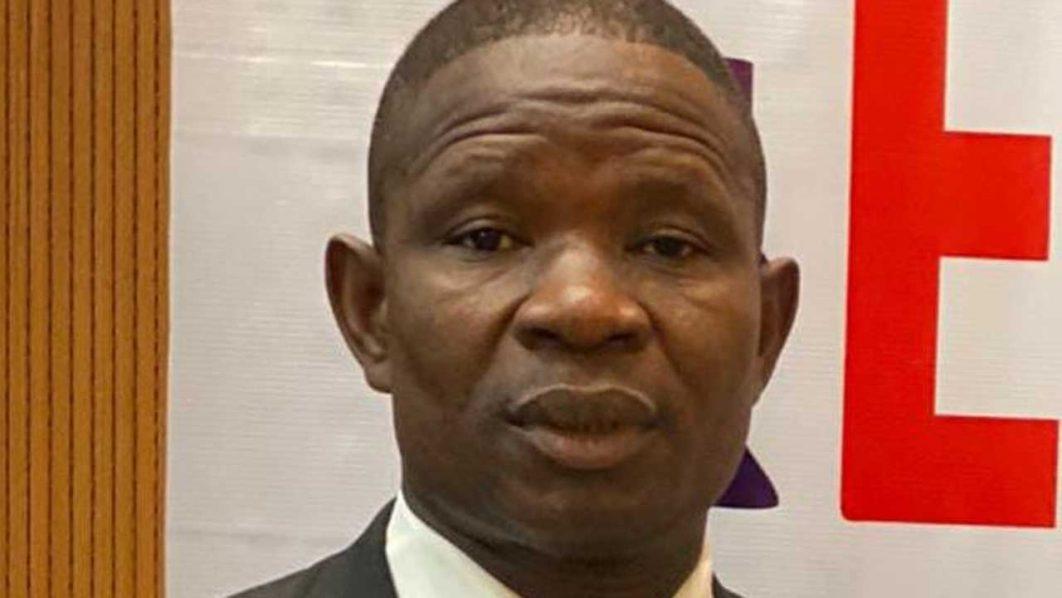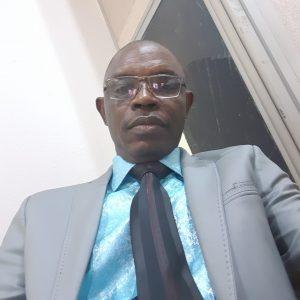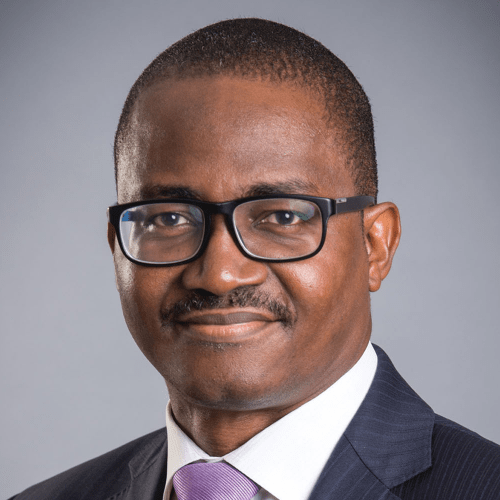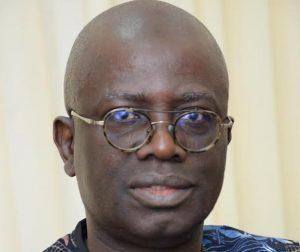I would have been shocked if the Lagos White Paper had said something different, about the events of October 20, 2020. Not that I believe or that I do not believe that there was any killing at Lekki Toll Gate (I am not in any position to hold an opinion one way or another on this).
If Governor Sanwo-Olu had accepted that there “was a massacre” at LTG on 20 October 2020, it would have meant that the Governor had accepted an indictment against himself and his government, his government having been fingered as the one who had “invited” the soldiers that allegedly committed the “massacre” and who had make frantic efforts at a cover-up.
My Comment
The nemo judex in causa sua (one cannot be a judge in one’s own case/cause) was perfectly relevant, but was grossly neglected; the aspect of the Lagos EndSars Panel mandate that had required the Panel to investigate what actually happened at Lekki Toll Gate (LTG) on October 20, 2020 was a directive to the Panel (by Lagos State Government, a party to the case) to investigate the Lagos State Government.
As far back as 1984, Lord Denning, MR (in R. v. Amber Valley DC, ex parte Jackson [1985] 1 WLR 298, [1984] 3 All ER 50) had given us an insight into the factors relevant in determining whether a person or authority should sit in judgment over a matter. Said he: “The court looks at the impression which would be given to other people. Even if he was as impartial as could be, nevertheless if right-minded persons would think that, in the circumstances, there was a real likelihood of bias on his part, then he should not sit, and if he does sit, his decision cannot stand. It is irrelevant whether he was in fact biased, because justice is rooted in [public] confidence.”
Protesters gather with placards in their hand, during a protest to commemorate one year anniversary of EndSars, a protest movement against police brutality at the Unity Fountain in Abuja, on October 20, 2021. – Hundreds of youth match to commemorate one year anniversary of Endars protest that rocked the major cities across the country on October 20, 2020. (Photo by Kola Sulaimon / AFP)
The Nigerian Court of Appeal gave further details in the Nigerian case of ZAMAN v. STATE (2015) LPELR-24595(CA): “In considering whether there was a real likelihood of bias, the Court does not look at the mind of the Chairman of the tribunal, or whoever it may be. It does not look to see if there was a real likelihood that he would, or did, in fact he would, or did, favour one side at the expense of the other. The Court looks at the impression which would be given to other people. Even if he was as impartial as could be, nevertheless, if right-minded persons would think that, in the circumstances, there was a real likelihood of bias on his part, then he should not sit…The Court will not inquire whether he did, in fact, favour one side unfairly. Suffice it that reasonable people might think he did. The reason is plain enough. Justice must be rooted in confidence; and confidence is destroyed when right-minded people go away thinking: ‘the judge was biased.’…. As Lush, J., said in Serjeant vs. Dale (1877) 2 Q.B.D. 558, 567.”
As I have pointed out, above, accusations were rife earlier (I don’t know how true or false they’re) that the Lagos State Government was a brain behind the invitation to the “soldiers” whose presence were noticed at the LTG on October 20, 2020 or that the Lagos State Government was engaged in some post- October 20, 2020 cover-up activities/efforts. But the same Lagos State Government, in setting up the EndSARS Panel, had included a Term Of Reference (TOR) that mandated the Panel to investigate the circumstances surrounding the same October 20, 2020 incident in respect of which the Lagos government had already been accused (wrongly or rightly).
Contrary to government expectations, the Panel went ahead and made “findings” and “conclusions” that could be interpreted as having given credence to the earlier accusations of complicity or cover-up against the Lagos State Government. Indeed, the Panel Report indirectly indicted the Lagos State Government. See what part of what the Panel Report had to say: “The Panel found that there was an attempt to cover up the incident of the 20th of October by the cleaning of the Lekki Toll Gate and the failure to preserve the scene ahead of potential investigations…Three trucks with brushes underneath were brought to the Lekki Toll Gate in the morning of October 21st October, 2020 to clean up the scene of bloodstains and other evidence.There was abundant evidence before the Panel that the Lagos State Waste Management Authority (LAWMA) indicated in its Twitter handle that it had effectively cleaned up the Lekki Toll Gate scene immediately after the incident of October 20, 2020.”

The recommendations of the same panel set up by one of the supposed accused persons in the whole saga (there are too many sagas for my liking, in Nigeria) were now taken back to same supposed accused person (Lagos government) for a final say called white paper. How could the report of a Panel set up by a Government which was among those accused of complicity in the event being investigated and which report had indirectly indicted the same government, be reasonably expected to be accepted by the same government? Is any objective thinker reasonably shocked that the White Paper had to roundly reject any findings, conclusions and recommendations in relation to any idea of a “massacre” at LTG on October 20, 2020? If any is shocked, then it means those who are shocked had expected Lagos State Government to have accepted a verdict against itself; that was too much to expect in a situation where the Nemo Judex Rule is not given its rightful place. I personally didn’t expect anything different; this is almost always the outcome when the Nemo Judex Rule is ignored in the hope that justice could be done in spite of the likelihood of bias! Or, was such permitted because a “Centre of Excellence” was involved? Anyway, the Centre of Excellence is not a Centre of Infallibility!
Lagos State Government was not qualified to have been the one to set up a Panel to investigate whether there was any killing at Lekki Toll Gate; to be the one to whom such a report was to be submitted to; and the one with powers to issue a White Paper on the report. This is not to say I believe or that I do not believe there were killings as earlier alleged by EndSARS Protesters, and later “found” by the Panel, although now rejected by the Lagos State Government. My thinking as an independent researcher, nonaligned observer and disinterested analyst, is that since Lagos government had been consistently fingered (whether justifiably or unjustifiably) as a suspect in circumstances surrounding the events of October 20, 2020 at LTG; Lagos government was consequently, from the get-go, in my opinion, legally disqualified to be the one to set up a Panel to investigate the same incident.
My conclusion
The Lagos EndSars Panel was a Judicial Panel of Enquiry, no doubt, set up in line with Lagos State law. However, the question whether the Panel could be said to be a reasonably Independent Judicial Panel of Enquiry (in view of its having been constituted by Lagos State Government, which also would be the ultimate decider in the matter, as has just played out vide the Lagos White Paper) is a question that can hardly be objectively answered in the affirmative! Additionally, it’s obvious, I respectfully submit, that the Lagos White Paper is a White Paper by a “party” to the case and therefore could be said to be in the form of one passing a judgment in one’s own case. My argument is on procedure, not on the merit of the earlier allegations, nor on the findings of the panel, nor on the opinions expressed here and there, nor on the white paper. There’s a law maxim to the effect that “fiat justitia ruat caelum” (let justice be done, though the heavens fall). Further, Lord Heward, C.J. had said in R. v. Sussex Justices, ex p. McCarthy (1924) 1 K.B. 256, 256, that “it is not merely of some importance, but is of fundamental importance that justice should not only be done, but should manifestly and undoubtedly be seen to be done.”
Two questions may now be asked in view of my analysis above: 1. Can the Lagos White Paper be reasonably taken to have done justice to the Lekki Toll Gate “killing” conundrum? 2. Can it be validly reasonably argued, at this juncture, that the October 20, 2020 Lekki Toll Gate EndSARS killing conundrum has been conclusively settled? I leave the answer to your guess; it may be as good as mine!
Udemezue, a lawyer, writes from Lagos.


















